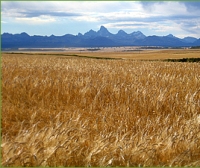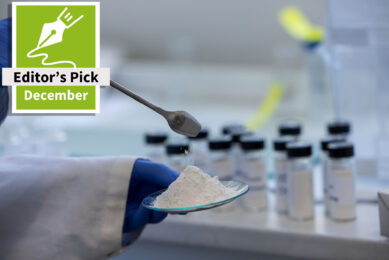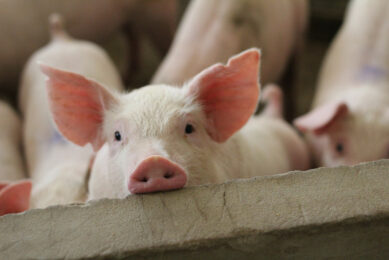Adjusting fertilizer to create low-phytate crops

Giving too much phosphorus to wheat and barley plants has been shown to raise the amount stored as phytate, rather than as more digestible forms of phosphorus.
This finding is important for two reasons: Livestock that are fed
high-phytate grains excrete more phosphorus in their manure, which can pollute
water. Also, phosphorus is a finite resource that could be irreplaceable once it
has been thoroughly mined—which could happen in the next 25
years.
Agricultural Research Service (ARS)
Edward J.
Souza and colleagues at the University of Idaho Research and
Extension Center in Aberdeen—David Bowen, Mary J. Guttieri and
Karen M. Peterson—made the discovery. Guttieri is with the Ohio Agricultural
Research and Development Center in Wooster, and Bowen is with Pioneer Hi-Bred
International, Iowa.
The researchers found that soil phosphorus
levels may affect grain phytate levels as much as plant breeding can, offering
two complementary solutions to the nutritional and environmental problems caused
by high phytate levels in grains.
Besides being more environmentally
sound, getting the application rate for phosphorus fertilizers just right might
improve the nutrients delivered by grain crops such as wheat and
barley.
Better digestibility
Not only is the
phosphorus in low-phytate grain crops more digestible by people, but low-phytate
grains free up minerals essential to human nutrition: zinc, manganese and
iron.
ARS plant geneticist Victor Raboy in Aberdeen, is a co-author of a
paper on phosphorus development in barley seeds—one of four papers by Souza,
Guttieri and Peterson in the November-December 2006 issue of Crop Science Journal. Raboy pioneered development of
low-phytate corn, rice and barley. His patented work also led to low-phytate
soybeans.











